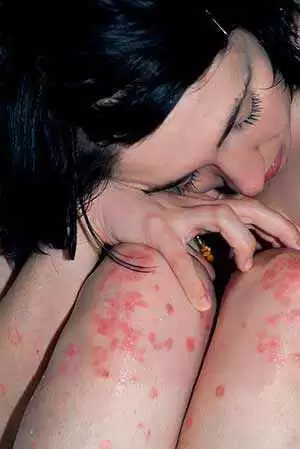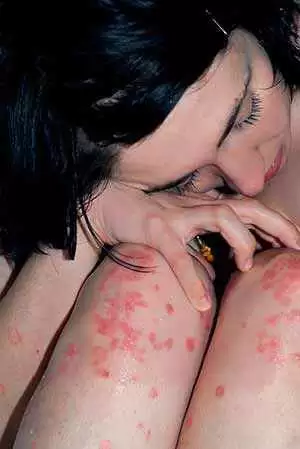
Celiac.com 05/19/2012 - Because a number of past studies examining the connection between celiac disease and psoriasis have had contradictory findings, researchers wanted to get a better idea of the actual risk of psoriasis in patients with biopsy-verified celiac disease.
 The researchers were J.F. Ludvigsson, B. Lindelöf, F. Zingone, and C. Ciacci, with the Department of Pediatrics at Sweden's Örebro University Hospital.
The researchers were J.F. Ludvigsson, B. Lindelöf, F. Zingone, and C. Ciacci, with the Department of Pediatrics at Sweden's Örebro University Hospital.
Celiac.com Sponsor (A12):
For their study, they used data from 28 pathology departments in Sweden to identified individuals with celiac disease diagnosed between 1969 and 2008. They found 28,958 patients with Marsh 3 villous atrophy.
They then used Cox regression to compare those celiac disease patients with 143,910 sex- and age-matched control subjects, and to assess the risk of psoriasis.
They found that celiac disease was a risk factor for future psoriasis (hazard ratio (HR) = 1.72; 95% confidence interval (CI) = 1.54-1.92. They found that, during follow-up, 401 individuals with celiac disease and 1,139 controls were diagnosed with psoriasis.
They found that the absolute risk of future psoriasis in patients with celiac disease was 135 per 100,000 person-years, with an excess risk of 57 cases per 100,000 person years.
Overall, 42% of the cases of psoriasis in patients with celiac disease could be attributed to celiac disease. Moreover, in children the team saw a strong association between celiac disease and psoriasis (HR = 2.05; 95% CI = 1.62-2.60).
Their results show that the connection between celiac disease and psoriasis seems to be far more than coincidental, as we also found a positive association between celiac disease and psoriasis before celiac diagnosis, with an odds ratio of 1.91; 95% CI = 1.58-2.31).
They conclude that individuals with celiac disease do, in fact, face an increased risk of psoriasis both before and after celiac diagnosis.
Source:
- Open Original Shared Link.



Recommended Comments